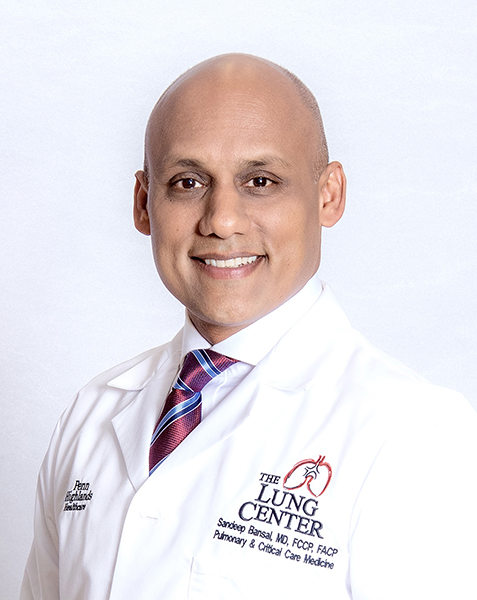What is Pulmonary Fibrosis?

Pulmonary Fibrosis describes more than 200 lung diseases characterized by progressive inflammation and scarring of the lungs. Symptoms include shortness of breath, dry/hacking cough, weakness, fatigue and chest discomfort. Over time, this scarring can cause the walls of the lung tissue and airways to be thicker and stiffer, which can inhibit air flow and lead to shortness of breath, particularly while walking or performing other physical activities.
What causes pulmonary fibrosis?
The most common type of pulmonary fibrosis is idiopathic pulmonary fibrosis (IPF), which means that there is no discernable cause. However, pulmonary fibrosis can also be caused by smoking, long-term exposure to certain toxins, radiation to the chest, certain medications and other conditions. It also can be caused by interstitial lung disease, a category of diseases that inflame or scar the lungs.
What are the symptoms?
The symptoms of pulmonary fibrosis, including IPF, may include:
- Shortness of breath
- Dry, hacking cough
- Weakness
- Fatigue
- Chest discomfort
IPF symptoms generally develop over time. If you have new or sudden shortness of breath, particularly with chest pain, call 911 or go to the nearest emergency department.
How is pulmonary fibrosis diagnosed?
The first and most important step to pulmonary fibrosis treatment is an accurate diagnosis. A timely diagnosis is essential to developing a treatment plan that can improve quality of life and extend lifespan.
“To diagnose pulmonary fibrosis, your provider will go over your family and medical history, discuss your symptoms and perform a minor physical evaluation,” said Sundeep Bansal, MD, FCCP, FACP, Medical Director of The Lung Center at Penn Highlands Healthcare. “Depending on where you seek care, other tests may be used as well. For instance, in 2018 Penn Highlands DuBois became one of the first centers in the country to begin using the Envisia Genomic Classifier genetic test for diagnosing pulmonary fibrosis without lung surgery.”
The Envisia classifier is used to detect genomic patterns that are a hallmark of IPF. The test is performed by using a thin, flexible tube that goes down the throat and into the lungs to obtain a small sample of tissue.
How is pulmonary fibrosis treated?
There is no cure for pulmonary fibrosis. Scars on the lungs cannot be repaired, but certain medications and therapies can help lessen the severity of symptoms and improve quality of life.
- Medication: Prescription drugs, called antifibrotic therapy, may help slow the progression of the disease. Your provider will choose the right medication for you based on the type and stage of your pulmonary fibrosis.
- Oxygen therapy: A treatment that provides you with supplemental oxygen, which may be needed as the disease progresses and your blood oxygen levels decrease. Oxygen therapy can help you stay active and enjoy life. There are different types of devices that can give you oxygen, such as tanks of liquid or gas oxygen that you breathe in through a nose tube or mask.
- Pulmonary rehabilitation: Pulmonary rehab includes education and exercise to increase awareness about your lungs and your disease. You will learn how to exercise with less shortness of breath. It may help reduce the number of times you need to see your provider or go to the hospital. Pulmonary rehab can also help you feel less anxious and more confident about how much physical activity you can safely participate in and how to live and travel safely with a chronic lung condition.
In addition, leading a healthy lifestyle, including eating a nutritious diet and engaging in regular exercise, can help you stay active longer. It is always important to talk to your healthcare provider before beginning an exercise program.
Penn Highlands Lung Center provides comprehensive pulmonary fibrosis treatment, as well as diagnosis and treatment for every type of pulmonary condition, including asthma, COPD and pneumonia. Penn Highlands offers excellent care throughout Pennsylvania. To learn more, visit www.phhealthcare.org/pulmonary-care.

